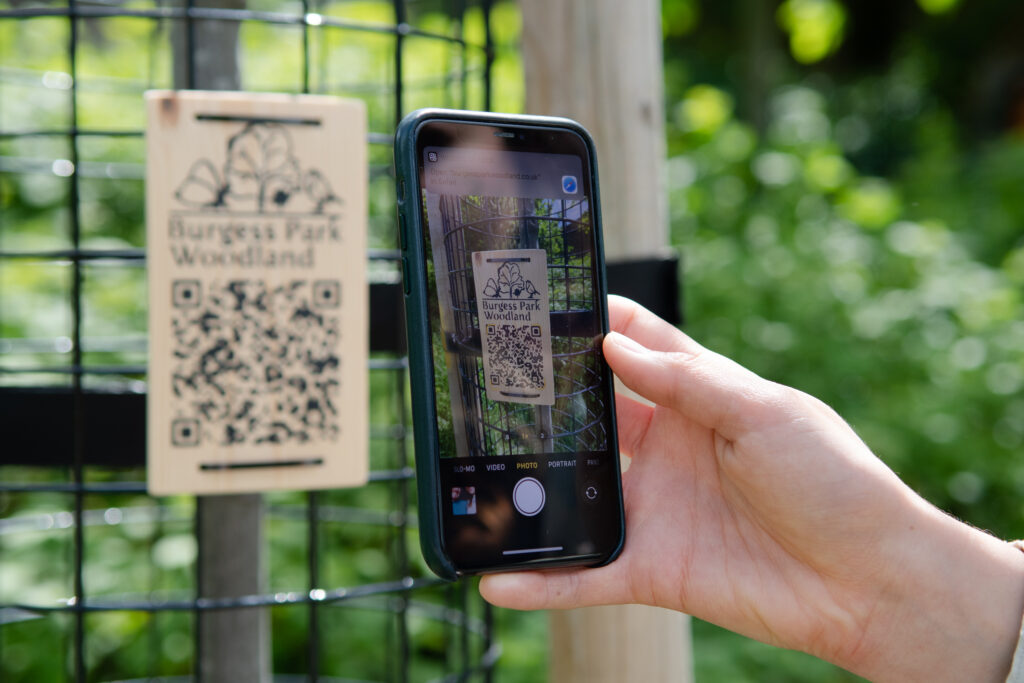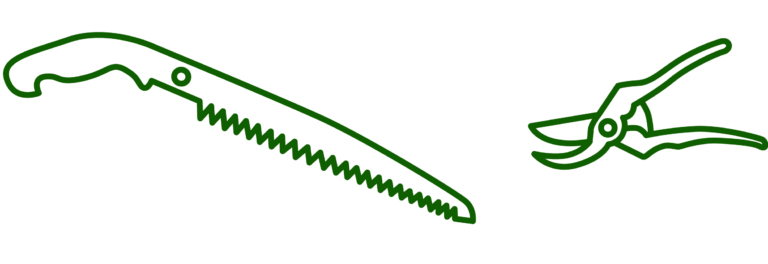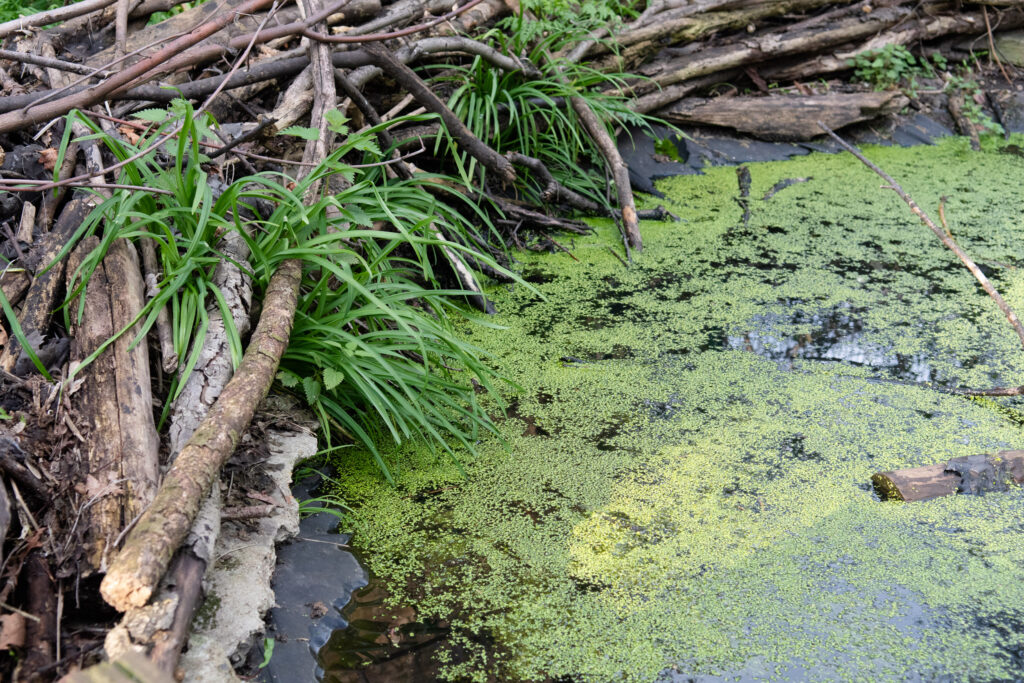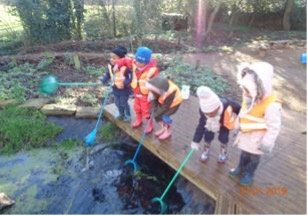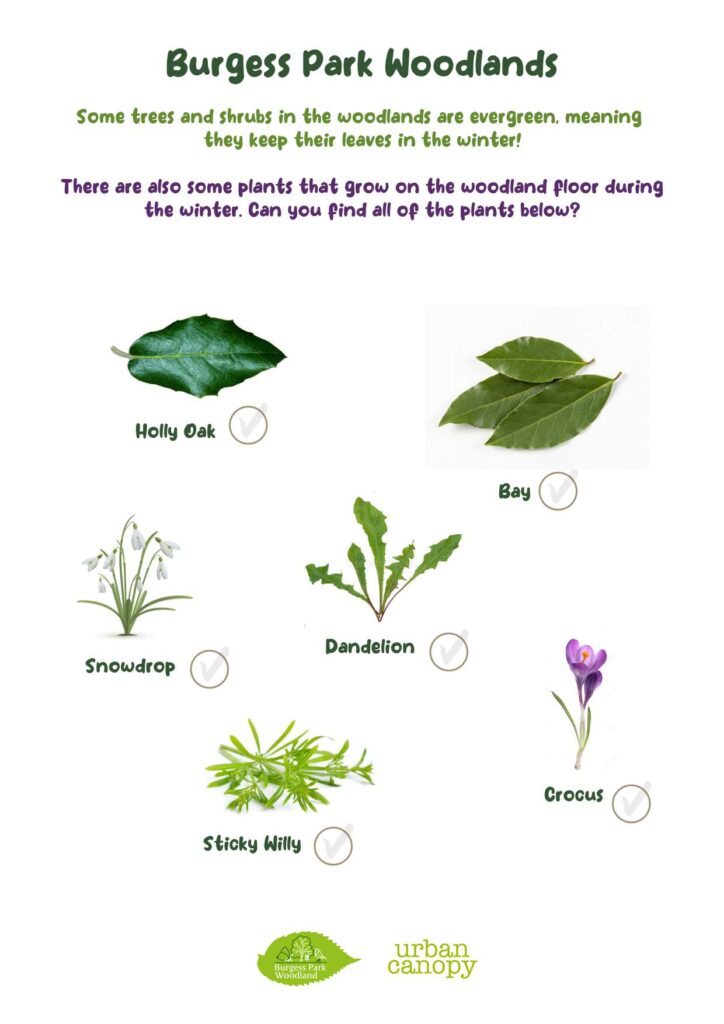You are in:

Woodland Marker #6 part of the Woodland Trail installed by the Friends of Burgess Park
Grey squirrel are common in the park, they were introduced to the UK in the 1800s. In winter you can easily see their twiggy nests or ‘drey’ high in the tree canopies.

About Cobourg Road Nature Area
This is a shady spot with well established trees and woodland undergrowth that shows how nature, when left to its own devices will colonise a patch of bare ground. The site is a cut through between houses, leading onto the Nile Terrace path that meanders back to the sports pitches and provides a lovely tree lined link to the Surrey Canal.
The woodland is used by 1st Place and other nurseries for Forest School activities. A circle of wooden seats and woodland paths encourage exploration and rest. Sometimes the gates will be locked when the sessions are running.
The site captures much of the Burgess Park story and was developed by Dave Sadler, a local resident and deputy park manager in the early 1960s, on a World War 2 bomb site which was incorporated into the park. Instead of the ‘clear and turf-over’ approach, he allowed nature to take hold, encouraging local school groups to plant woodland flowers and learn about wildlife. Urban ‘rewilding’ in process, little has been done to improve species diversity and trees have simply been managed to ensure accessibility.
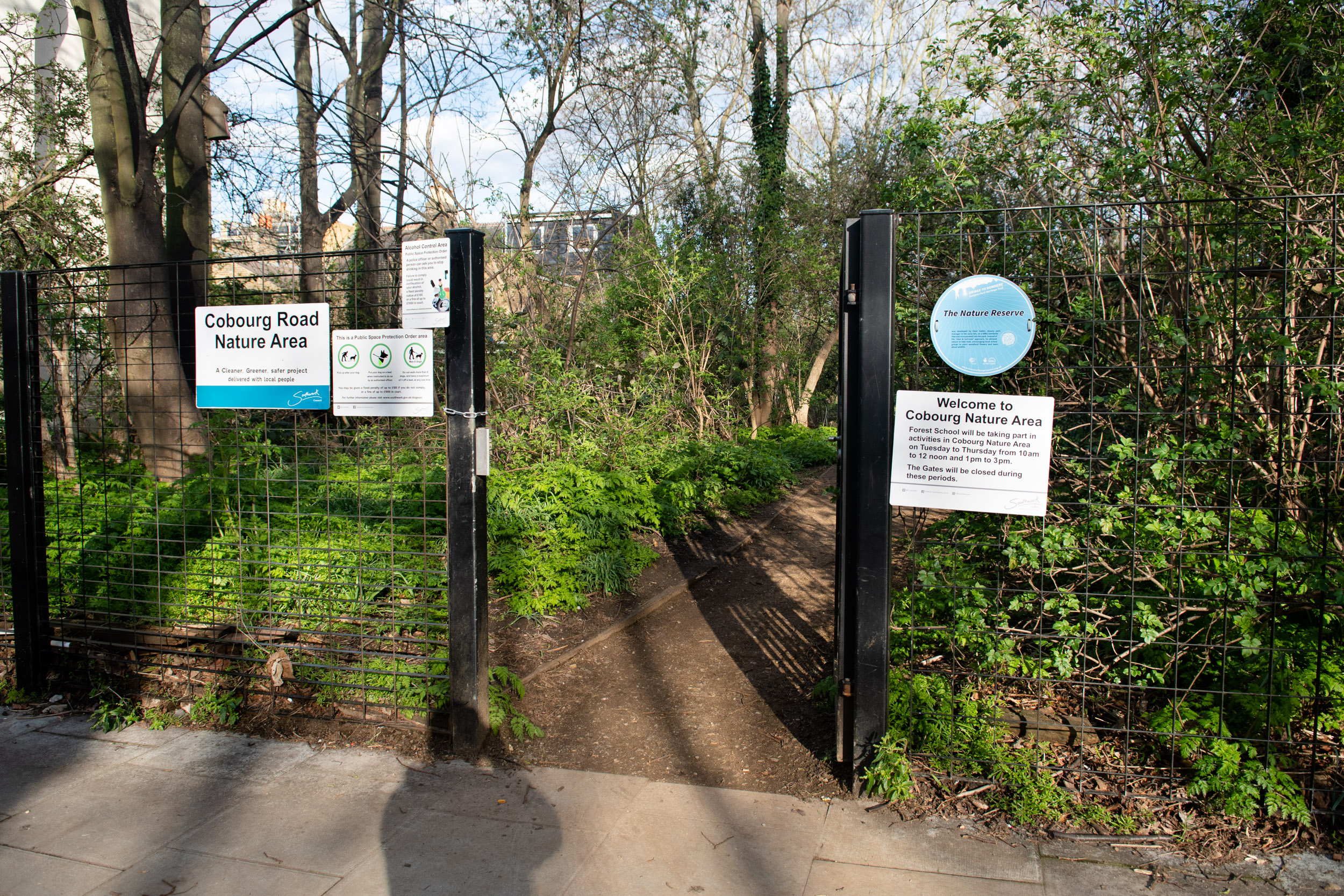
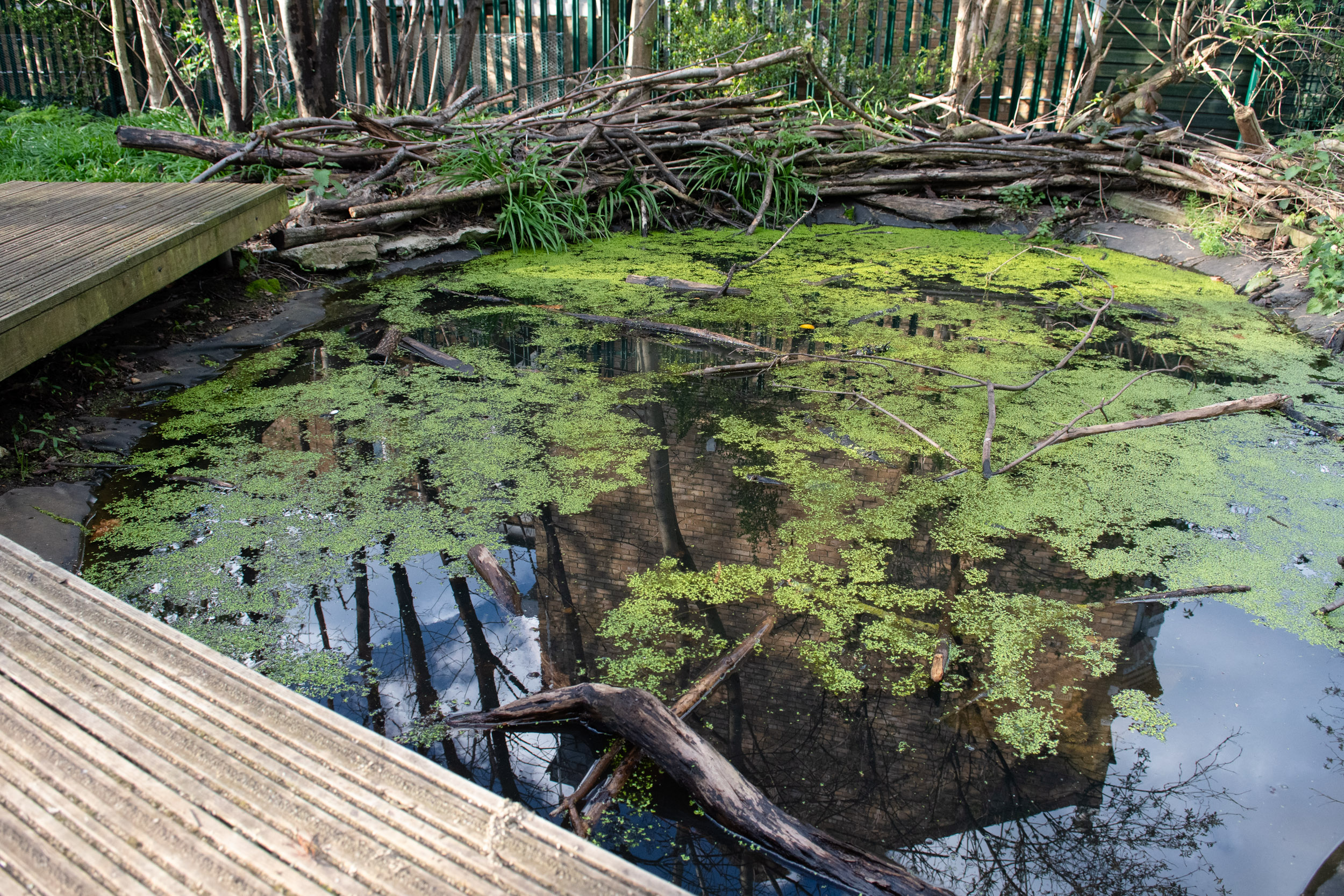
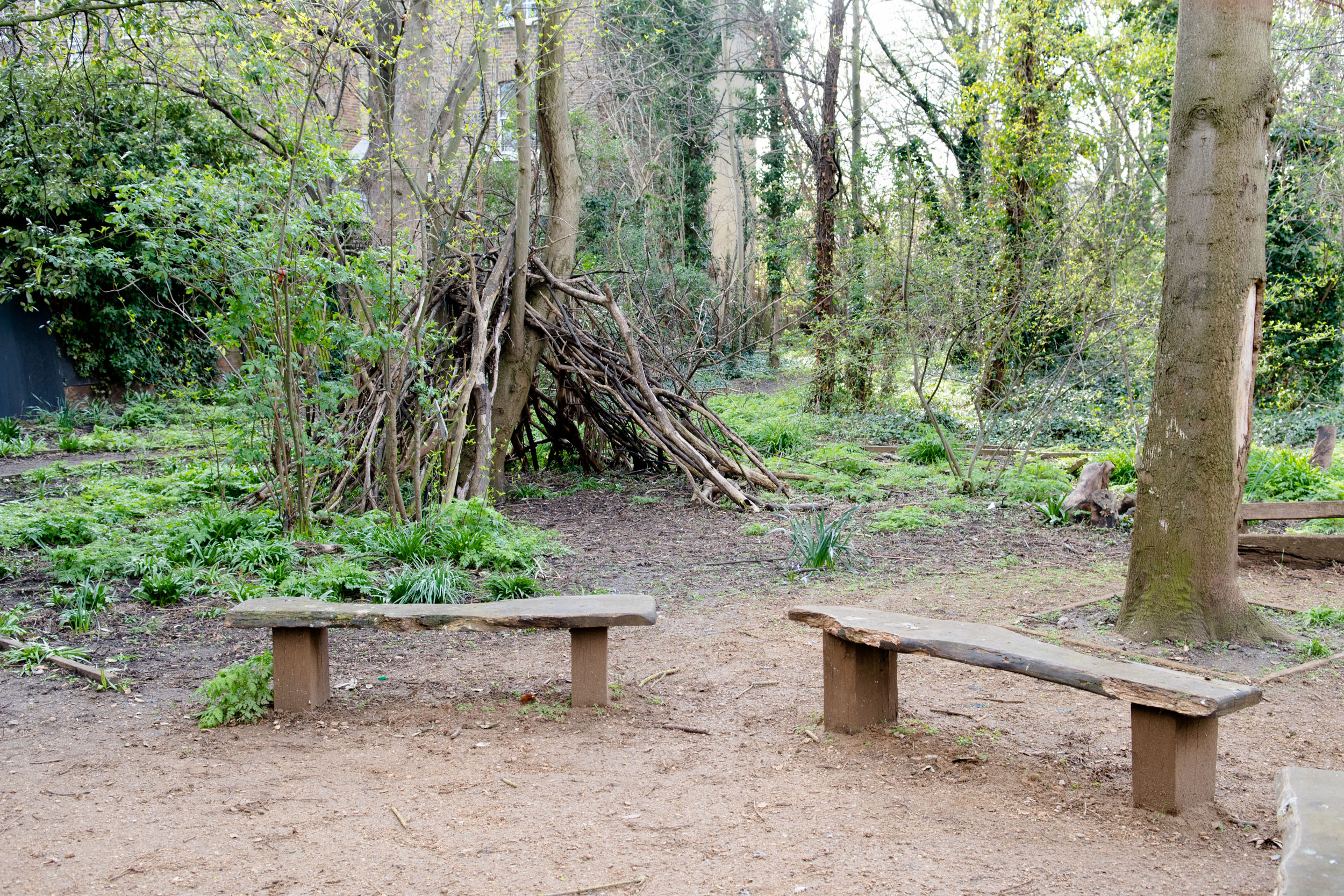
What to look out for
Look out for expansive plantings of Snowdrops Galanthus nivalis in early January. These tiny delicate flowers are incredibly hardy, the new growth responds to daylight hours, not temperature.
Cow parsley Anthriscus sylvestris flourishes in early summer and there is a small pond.
Water is vital for wildlife, and the pond is part of a mosaic of water available in the park and could be improved to encourage greater diversity. Filled by rain water, levels can get low in summer and the plastic sides will benefit from being re-graded so they can support further planting and habitats.
Woodland Maintenance
The pond is filled by rain water, levels can get low in summer. The exposed plastic sides will benefit from being re-graded so they can support further planting and habitats. Additional planting around the edge of the pond would support a wider range of insects and could enable the pond to be used by frogs.
Rubbish and flytipping can be a problem within the woodland and at the entrance way off Nile Terrace/Oakley Place. If you see any dumped rubbish please report to the council FixMyStreet (southwark.gov.uk)
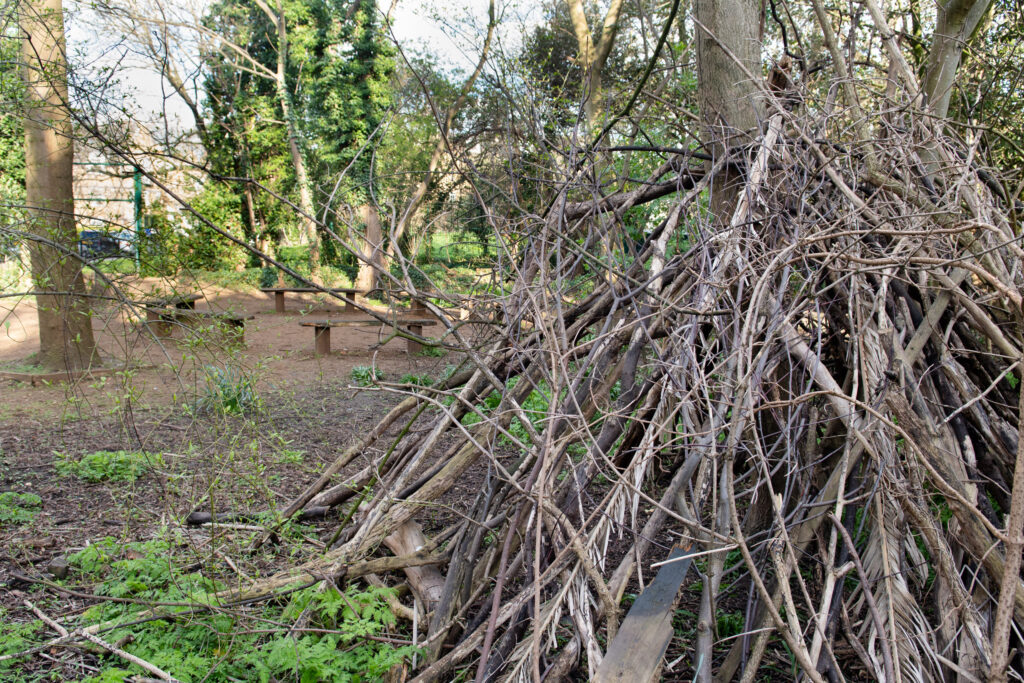
Things to do
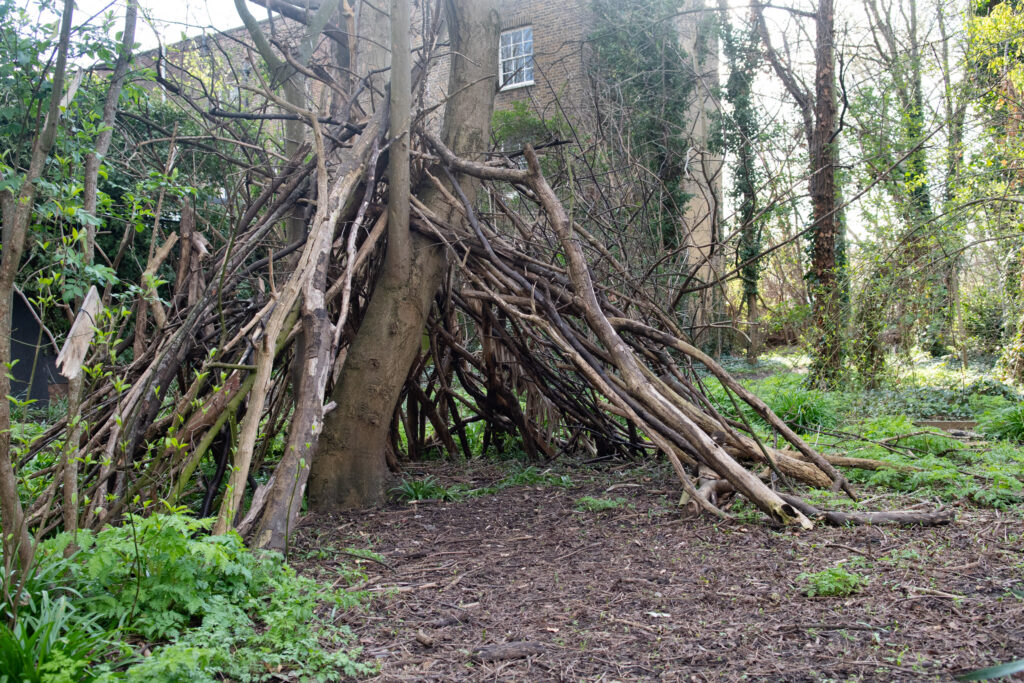
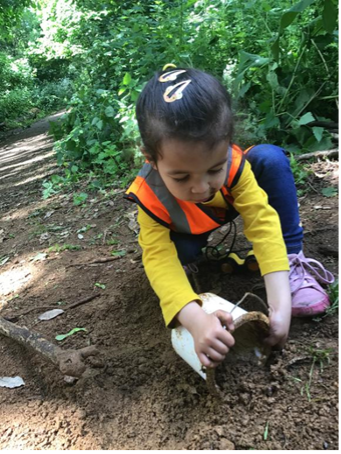

Impact Reporting
We recently crowdfunded a report from London Wildlife Trust on the overshadowing of Southampton Way Woodlands & St George’s Way Copses.
London Wildlife Trust have told us the Burgess Park woodlands have a special value:
- The woodlands have ecological value to the broader parkland, reflecting the recognition of Burgess Park’s potential biodiversity value for local people.
- The significance of the local bat population and the role the park plays in supporting that bat population foraging and the impact of building lighting.
- The building shading on the ecological area immediately to the north of the proposed development site are not insignificant and may have considerable long-term effects on woodlands, woodland species and pollinators.
- The cumulative effects from proposed developments along Parkhouse Street.
- Negative long-term habitat and species impacts on protected and/or priority species.
- Burgess Park is a Site of Borough Importance for Nature Conservation in Southwark, it is of authority-wide value.
Welcome to Burgess Park Woodland Trail!
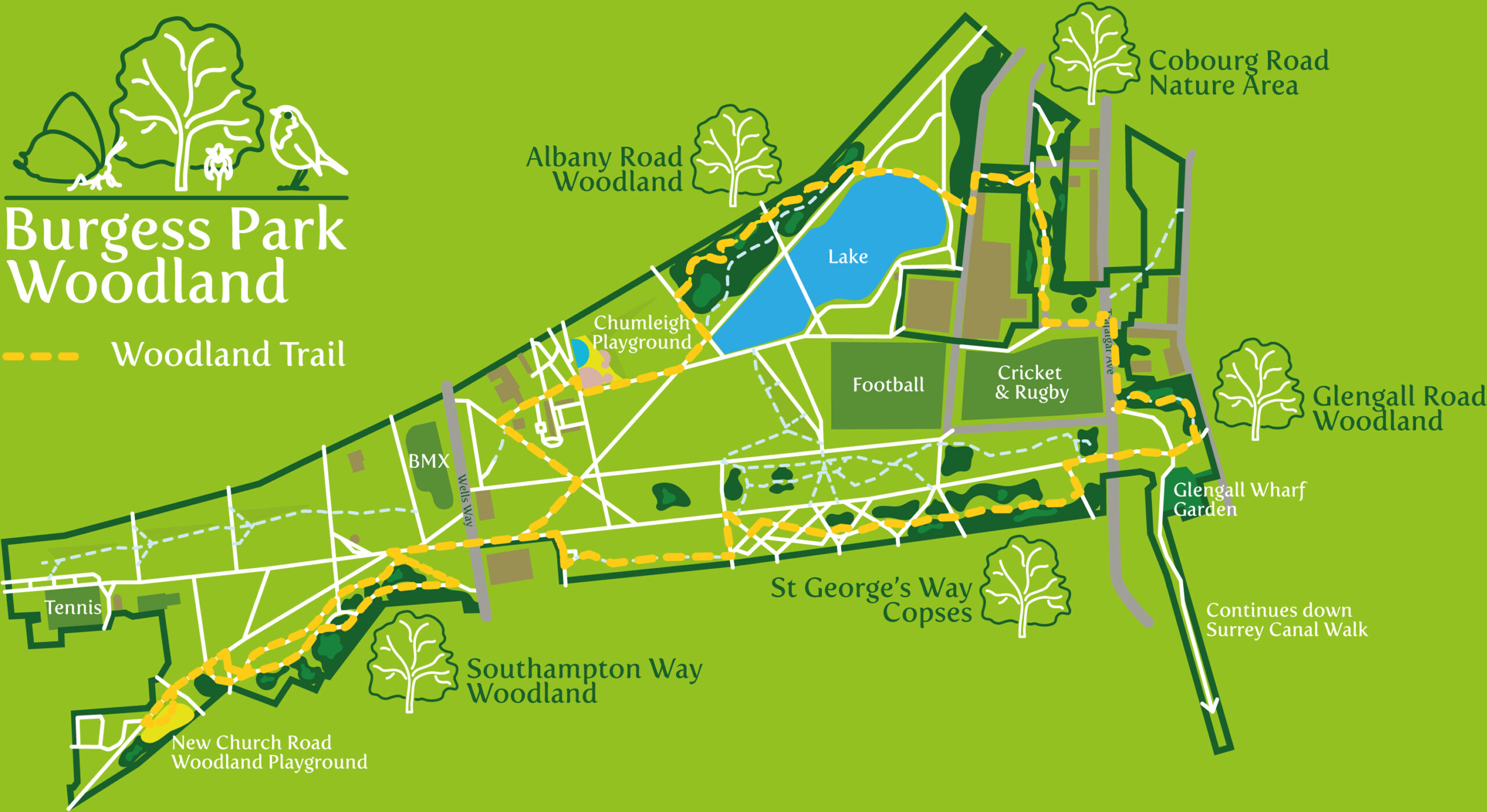
Explore Burgess Park Woodland - Follow our Woodland Trail!
Look out for our wooden woodland markers throughout Burgess Park and follow them on a route through the woodlands. Scan the QR codes on each with the camera on your smartphone and find out interesting facts about the woodlands and the history of the area.
